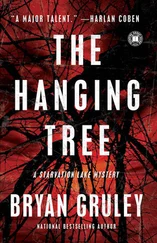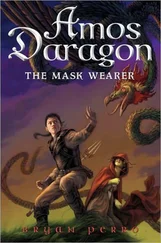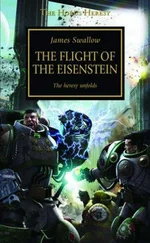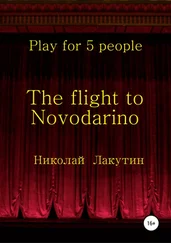When the leader signalled to him, he started to run and felt himself stride, with a sense of supreme confidence. As he neared the edge of the cliff, his eyes rose above the horizon – he leapt as high as possible, aware that his body sailing into the sky towards the sea created a silhouette seen by the leader and boys who still waited their turn. Airborne, he squeezed his eyes shut. He wanted to remember for ever how it felt to float over the earth, the air above coalescing with the water below, whose merging currents buoyed him as he floated outwards into its transmuting body.
Chapter 2
When he got home two days later, Karl didn’t tell his mother what had happened in the tent, but he showed her his new knife. She wasn’t very interested; he decided she hadn’t grasped its significance. However, he would always have been the first in his village to join the youth group, which no one in Germau would forget. The children were already asking him about his adventures.
Ida took the dagger from him and read the inscription, ‘Blood and Honour’, then handed it back. ‘We have enough knives. I wish they’d given you something useful.’
‘It is useful.’
Ida didn’t argue. ‘It’s time for your piano practice.’
‘But I told everyone I’d go back out after I’d shown you the knife.’
‘All right then, just for a little while. But I want you to practise before supper.’
When Karl opened the front door the children had gathered round the tree at the centre of the square, waiting for him.
‘Can I hold it?’ Werner asked.
‘In a minute.’
The children followed Karl up past the church to the field beside the cemetery, where he pulled the dagger from its sheath and sat down in the grass. ‘Don’t cut yourself,’ he said, as he held it out to Werner. The knife went round the circle. Even the girls were fascinated.
‘Did they make you kill anyone?’ Werner asked.
Karl looked at him with contempt. ‘You’re such an idiot. Why would we kill anyone?’
‘I’m just asking.’
‘They made us jump off a cliff, though.’
‘Did anyone die?’
Karl ignored him. After he had put the dagger back into its sheath, he suggested they play Search and Destroy. They stood up and milled about for a while, deciding on the names of the units they would pretend to be in. Karl told them the best was called Das Reich. ‘You can do anything you want in it,’ he said. ‘Not even the regular army can tell you what to do.’ He had heard that the élite SS unit couldn’t get into trouble for anything – even killing people.
Paula, who would be ten next spring, said, ‘The Jungmädel is better than Das Reich.’
The boys laughed: the girls’ youth group better than Das Reich? Ridiculous!
Karl tried to imagine Paula riding on a tank as he chose sides for the game. Suddenly the girls realised he was only picking the boys.
‘We’re playing, too,’ Paula demanded.
‘Fetch us some food if you want to join in,’ one of the boys shouted.
‘And don’t forget to wash the dishes,’ Peter added.
Any semblance of order broke down as the girls ran at the boys, who raced off in all directions across the field. When Peter caught a girl at the far end of the field near the woods he said, ‘Pull your pants down and maybe we’ll let you play.’
‘You first,’ she said.
‘The leader doesn’t go first.’
‘Then I shan’t.’
For no apparent reason, Peter threw up his arm and shouted, ‘ Sieg Heil !’
The boys on the other side of the field stopped and looked at him and the girl.
‘Don’t waste it on a girl!’ Karl screamed.
Over the following year the children carried on playing new games, imitating the stories that the older youth group members shared. The games acquired a distinctly militaristic element, the children both inventive and dogmatic. But no matter how disciplined they pretended to be, the games always broke down by the time the play day ended, order giving way to chaos, discipline disintegrating into confusion.
Karl and Peter did not hear from their father for six months. When a note did finally arrive in December 1942, he told them he was in Russia, but didn’t say where. ‘We’re busy,’ he wrote. ‘Always busy.’ Something in the tone, or perhaps the note’s brevity, made him sound even more distant.
Ida tried not to worry about the lack of communication between herself and her husband. He was so far away and, after all, the country was at war: she shouldn’t expect any more. She tried to forget that an acquaintance received a letter every month from her husband in Russia. Ida had stopped visiting her: the only thing the woman talked about was her latest letter from her husband.
Rumours were spreading that the troops in Stalingrad were failing against the Russians, but Ida had heard no such news over the radio. Hitler continued to broadcast to German women, desperate to hold their loyalty. Many, like Ida’s sister, felt a strong bond with him that had developed from the broadcasts and were sure that he would tell them if the situation changed. Ida worried that the radio news neither confirmed nor denied what they all heard from injured soldiers returning home.
Karl continued attending school in Pillau near the military base that sprawled through much of the port town. He had been top of the class in the three Latin tests that year. His teacher had told him that he would recommend him for the Adolf Hitler School. Karl knew that if he won a place, he had a strong chance of one day reaching a high position in the government. Early in 1943 Hitler Youth received the annual slogan. It hung above the blackboard in the mathematics room: ‘War Service for German Youth’.
That winter the only thing he didn’t like about going to school in Pillau was coming home by train after dark, especially during a new moon. He dreaded the moment when the train dropped him off on the empty platform two kilometres from his house. The forest was so dark when he walked alone back to the village and he always felt as if something or someone were watching him among the trees. He would walk in the middle of the road so that nothing could reach him from the edge, feeling his way through the darkness between tree cover and the clouds, the lack of light sometimes making him feel as though he had been locked inside a giant room from which he had to find his way out. Whenever his feet touched the dirt at the edge of the road, he would sprint back to the middle. Over time he developed the ability to steer down the middle as he slowly became accustomed to his temporary blindness. When he reached the rise that led over the small climb before dropping into Germau, he increased his pace. Every night was the same: he never felt safe until he reached the top of the small hill and saw the shimmering lights below surrounding the square.
Chapter 3
By the autumn of 1943 little of the news that filtered into the peninsula villages was good. During the summer the Russians had started a counter-offensive and wounded soldiers occasionally came home on leave. A young man from Sacherau had lost his hand, but planned to return to the front as soon as the wound healed. He told the children how retreating German troops destroyed everything they came across. He was part of an SS demolition squad and had blown off his hand as his regiment pulled back across the Ukraine towards Poland. He said they had set entire villages ablaze and used flame-throwers to scorch wheatfields so that the Russian divisions had no shelter or food as they pushed across the steppes towards Germany. He was confident that they would be stopped by the time they reached Poland and he wanted to be there for the celebration when the Russians had been defeated.
In Berlin the constant bombing had forced Ida’s sister Elsa to send her son to his aunt: on the peninsula there was still little sign of war, except for a rare troop transport passing through the square on its way between Memel and Pillau. Elsa remained in Berlin: she had secured a coveted job at the Chancellery.
Читать дальше












